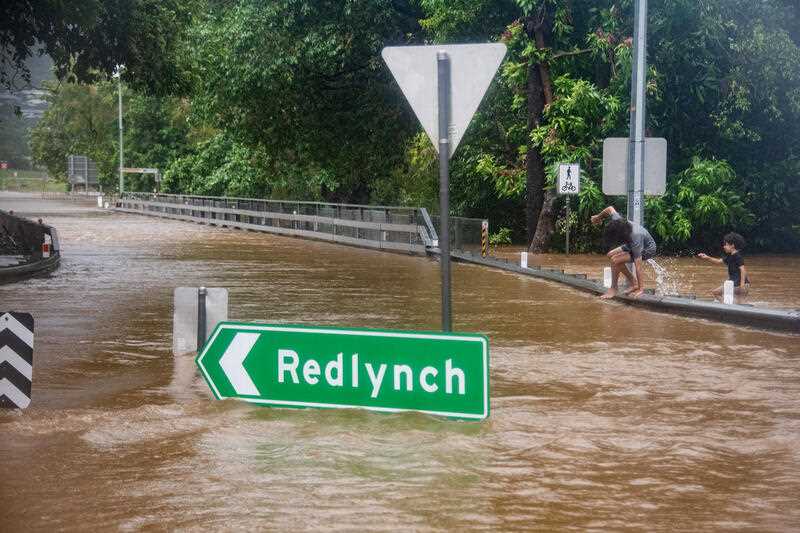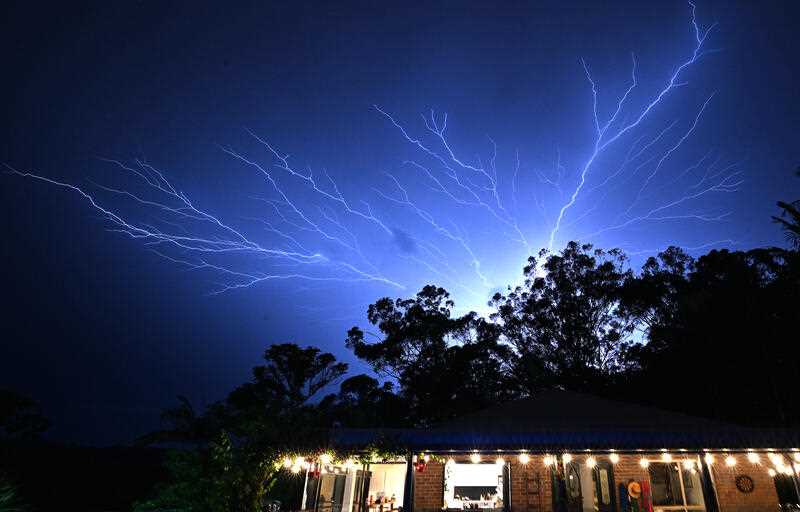The difficulty of predicting extreme weather events is made harder this year by an unusual El Nino, putting further pressure on emergency services.
That’s according to University of Technology Sydney visiting fellow Dr Milton Speer, who is among several scholars weighing into discussion about the accuracy of weather predictions this summer.
The long list of wild weather events in last few months includes serious flooding in far north Queensland, damaging storms on the Gold Coast over Christmas and floods in parts of NSW and Victoria in early January.
Forecasters and emergency services have come under scrutiny, particularly in Queensland where some residents claim they received minor flood warning alerts only after they were isolated.
Forecasting is always a challenge when severe weather warnings and difficult conditions are involved, according to Dr Speers.
“These flash flood-producing thunderstorms are difficult to forecast at the best of times,” he said.
Part of the reason behind the recent barrage of heavy showers and thunderstorms is unusual elements of this year’s El Nino climate pattern, Dr Speers says, which he attributes to global warming.
Atmospheric moisture had risen up to about 10,000 metres where weather is created, while at the same time increasing at the earth’s surface, he said.
“Emergency services both in regional areas and cities are impacted by these difficult meteorological forecasting conditions,” he said.
“Of course, cropland farmers are particularly aware of the damage that these conditions pose around harvest time.”

The Bureau of Meteorology has been in the spotlight since mid-2023 when it held off declaring an El Nino event until months after the World Meteorological Organisation and other agencies, although they use different thresholds.
Its long-range forecast issued in November predicted below average rainfall from December to February across most of northeast Australia and the northern coastline.
“Long range forecasts do not predict sudden severe weather events,” the bureau said in a statement on Friday.
“Weather forecasts carry an inherent uncertainty that, on some occasions, results in forecasts deviating from the actual weather.”
The bureau pointed out Australia did experience its driest August to October period on record, saying about half of the previous El Nino events also had rainfall events but this year’s is unusual due to how widespread and regular it is.
In late December, the bureau also defended itself following commentary about the timing and accuracy of forecasts for the Gold Coast storms.
The organisation stressed it had no say in the content of warnings sent by text messages and had “consistently warned” communities about the risk of severe thunderstorms.
The current El Nino is so rare there’s only been two others like it in the last 70 years, according to University of Southern Queensland emeritus professor Roger Stone.
He said more severe El Ninos tend to “overshoot” Australia, with the lack of rainfall affecting the Indian Ocean more than eastern Australia.
“(The Bureau’s) seasonal climate forecast system is a hybrid between its own models and that of the UK Met Office,” he said.
“I’m not sure it did so well.”
Professor Christian Jakob warned that determining weather and climate beyond a few days can be unpredictable.
“Forecasts beyond a few days, including those for El Nino, are by their nature probabilistic,” said Prof Jacob, who is director of the Australian Research Council’s Centre of Excellence for the Weather of the 21st Century.
He said the job of forecasters is to predict the odds of something happening.
“Evaluating the quality of a probabilistic forecast on a single event cannot be done, we can not declare success or failure that way,” he said.
“We may not like it, but it is the nature of forecasting the weather and climate beyond a few days.”
By Rachael Ward in Melbourne



